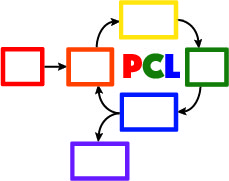Many moons ago, during one of our in-person workshops in a time before COVID, a group of POGIL-PCL members discussed the idea of developing a special issue of the The Journal of Chemical Education around inquiry-based laboratory experiments. In the intervening time, a lot has happened, but the idea has lived on....... changed a bit......changed some more…….. and then broadened to include all disciplines of chemistry. The idea has finally come to fruition and you can find a Call for Papers in the November issue of JCE..
I want to encourage you, the reader, to consider either writing up that manuscript you've been planning on or expediting work on something that is ongoing. I want to also encourage you to reach out to other friends and colleagues who may have something to contribute to this issue.
In this special issue we seek manuscripts from the chemistry education communities that explore inquiry-based methods of teaching in the laboratory setting. For the purposes of this issue, we are defining inquiry-based laboratory teaching with the following criteria:
Experiments will have outcomes that are not fully known to the students. Such experiments should go well beyond the verification of published values.
Students are involved at some level with the experimental design, or students will make decisions about the experimental protocol in the course of the experimentation process.
We are looking for authors to share their work surrounding innovations in inquiry-based teaching in the chemistry laboratory and to describe the effects of these innovations on students’ behavior towards learning chemistry, perceptions of laboratory work, or new conceptual understanding.
More description, suggestions and details are in the call for papers, with a deadline of April 12, 2022.
I look forward to seeing your manuscripts submitted to the Journal in the coming months.
Alex Grushow
